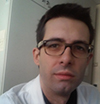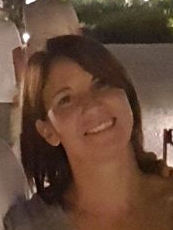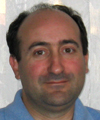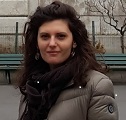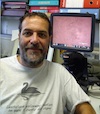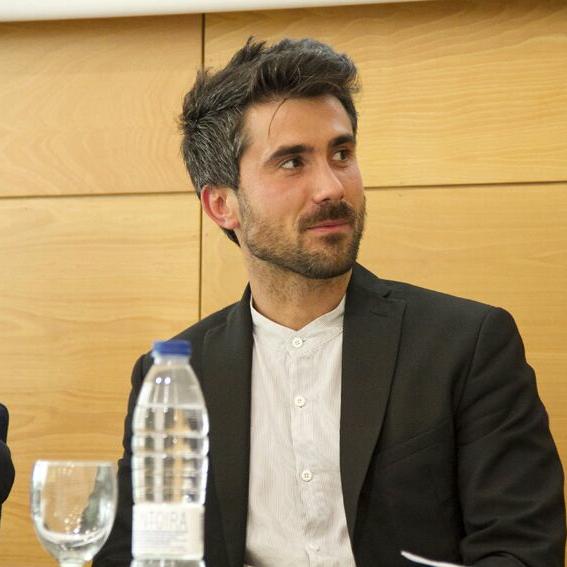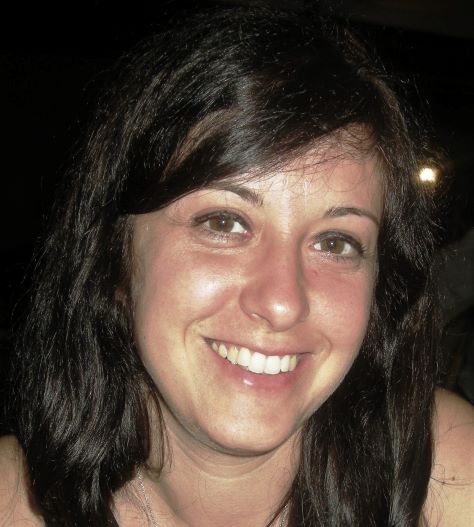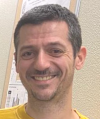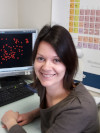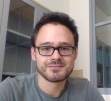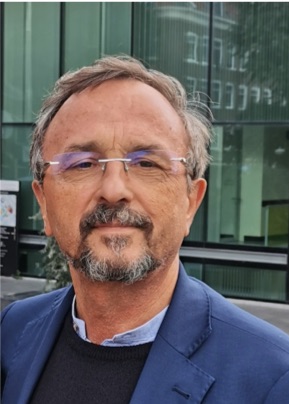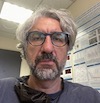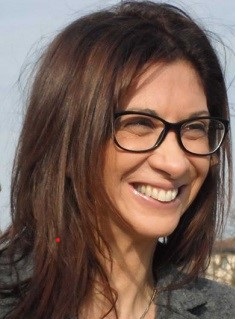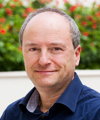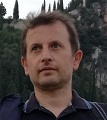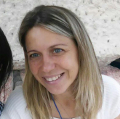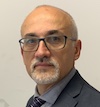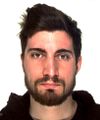Studying at the University of Verona
Here you can find information on the organisational aspects of the Programme, lecture timetables, learning activities and useful contact details for your time at the University, from enrolment to graduation.
Academic calendar
The academic calendar shows the deadlines and scheduled events that are relevant to students, teaching and technical-administrative staff of the University. Public holidays and University closures are also indicated. The academic year normally begins on 1 October each year and ends on 30 September of the following year.
Course calendar
The Academic Calendar sets out the degree programme lecture and exam timetables, as well as the relevant university closure dates..
| Period | From | To |
|---|---|---|
| I semestre | Oct 1, 2020 | Jan 29, 2021 |
| II semestre | Mar 1, 2021 | Jun 11, 2021 |
| Session | From | To |
|---|---|---|
| Sessione invernale d'esame | Feb 1, 2021 | Feb 26, 2021 |
| Sessione estiva d'esame | Jun 14, 2021 | Jul 30, 2021 |
| Sessione autunnale d'esame | Sep 1, 2021 | Sep 30, 2021 |
| Session | From | To |
|---|---|---|
| Sessione estiva di laurea | Jul 16, 2021 | Jul 16, 2021 |
| Sessione autunnale di laurea | Oct 11, 2021 | Oct 11, 2021 |
| Sessione autunnale di laurea - Dicembre | Dec 6, 2021 | Dec 6, 2021 |
| Sessione invernale di laurea | Mar 9, 2022 | Mar 9, 2022 |
| Period | From | To |
|---|---|---|
| Festa dell'Immacolata | Dec 8, 2020 | Dec 8, 2020 |
| Vacanze Natalizie | Dec 24, 2020 | Jan 3, 2021 |
| Epifania | Jan 6, 2021 | Jan 6, 2021 |
| Vacanze Pasquali | Apr 2, 2021 | Apr 5, 2021 |
| Festa del Santo Patrono | May 21, 2021 | May 21, 2021 |
| Festa della Repubblica | Jun 2, 2021 | Jun 2, 2021 |
| Vacanze estive | Aug 9, 2021 | Aug 15, 2021 |
Exam calendar
Exam dates and rounds are managed by the relevant Science and Engineering Teaching and Student Services Unit.
To view all the exam sessions available, please use the Exam dashboard on ESSE3.
If you forgot your login details or have problems logging in, please contact the relevant IT HelpDesk, or check the login details recovery web page.
Should you have any doubts or questions, please check the Enrollment FAQs
Academic staff
 rossana.capuani@univr.it
rossana.capuani@univr.it
 vittoria.cozza@univr.it
vittoria.cozza@univr.it
 luca.pasetto@univr.it
luca.pasetto@univr.it
 claudio.tomazzoli@univr.it
claudio.tomazzoli@univr.it
 franco.zivcovich@univr.it
franco.zivcovich@univr.it
Study Plan
The Study Plan includes all modules, teaching and learning activities that each student will need to undertake during their time at the University.
Please select your Study Plan based on your enrollment year.
1° Year
| Modules | Credits | TAF | SSD |
|---|
2° Year activated in the A.Y. 2021/2022
| Modules | Credits | TAF | SSD |
|---|
3° Year activated in the A.Y. 2022/2023
| Modules | Credits | TAF | SSD |
|---|
1 module to be chosen among the following| Modules | Credits | TAF | SSD |
|---|
| Modules | Credits | TAF | SSD |
|---|
| Modules | Credits | TAF | SSD |
|---|
1 module to be chosen among the followingLegend | Type of training activity (TTA)
TAF (Type of Educational Activity) All courses and activities are classified into different types of educational activities, indicated by a letter.
General and Inorganic Chemistry (2020/2021)
Teaching code
4S00136
Credits
9
Language
Italian
Scientific Disciplinary Sector (SSD)
CHIM/03 - GENERAL AND INORGANIC CHEMISTRY
The teaching is organized as follows:
teoria
esercitazioni
laboratorio [1° turno]
laboratorio [2° turno]
laboratorio [3° turno]
laboratorio [4° turno]
Learning outcomes
The aim of the course is to acquire the main concepts of General Chemistry and some notions of Inorganic Chemistry. In particular: - models and general concepts for the explanation and prediction of some physics and chemistry properties of systems of increasing complexity: single atoms, ions, molecules, pure substances, macroscopic systems of one or more components; - concepts and methods to qualitatively and quantitatively predict the variations of the intensive and extensive properties of chemical systems in evolution. The course is integrated with a series of introductory laboratory experiments.
Program
Introduction. Chemical and physical properties of matter and their measurements.
Elements, atoms and compounds.
Nomenclature of inorganic compounds.
Types of chemical reactions. Reaction stoichiometry.
Ideal and real gases.
Thermochemistry. Internal energy and enthalpy. Standard enthalpy of reaction and formation.
Atomic structure. Atomic orbitals. Electronic configuration, Aufbau principle.
Periodic properties: atomic and ionic radii, ionization energy, electron affinity, electronegativity.
Elementary notions on the ionic bond. Ionic compounds.
Covalent bond. Lewis formula. Resonance. Molecular geometry and polarity. Orbital hybridisation. Single and multiple bonds.
Interparticle forces.
Properties of liquids. Solutions. Colligative properties.
Properties of solids.
Chemical kinetics. Arrhenius equation. Reaction mechanisms.
Chemical equilibrium. Equilibrium constant.
Acid-base equilibrium. Acid, base and salt solutions. Acid-base titration. Buffer solutions.
Solubility equilibrium.
Entropy. Spontaneous processes. Gibbs free energy. Standard free energy of reaction and formation.
Electrochemical cells. Electrolysis.
Radiochemistry.
Introductory laboratory experiments
Bibliography
| Activity | Author | Title | Publishing house | Year | ISBN | Notes |
|---|---|---|---|---|---|---|
| teoria | Atkins PW, Jones L | Fondamenti di chimica generale (Edizione 2) | Zanichelli, 2a edizione | 2018 | 8808670120 | |
| teoria | Ivano Bertini Claudio Luchinat Fabrizio Mani Enrico Ravera | Stechiometria Un avvio allo studio della chimica (Edizione 6) | Casa Editrice Ambrosiana. Distribuzione esclusiva Zanichelli | 2020 |
Examination Methods
The examination consists only of a written paper, containing 22 multiple choice tests. In order to pass the exam, it is necessary to obtain at least 60% of the maximum number of points. The exam does not differ for students who attend the lessons or not.
Type D and Type F activities
Le attività formative in ambito D o F comprendono gli insegnamenti impartiti presso l'Università di Verona o periodi di stage/tirocinio professionale.
Nella scelta delle attività di tipo D, gli studenti dovranno tener presente che in sede di approvazione si terrà conto della coerenza delle loro scelte con il progetto formativo del loro piano di studio e dell'adeguatezza delle motivazioni eventualmente fornite.
| years | Modules | TAF | Teacher |
|---|---|---|---|
| 3° | Model organism in biotechnology research | D |
Andrea Vettori
(Coordinator)
|
| years | Modules | TAF | Teacher |
|---|---|---|---|
| 3° | Python programming language | D |
Vittoria Cozza
(Coordinator)
|
| years | Modules | TAF | Teacher | |
|---|---|---|---|---|
| 1° | Subject requirements: chemistry and biology | D | Not yet assigned | |
| 1° | Subject requirements: basic mathematics and physics | D | Not yet assigned | |
| 3° | LaTeX Language | D |
Enrico Gregorio
(Coordinator)
|
|
Career prospects
Module/Programme news
News for students
There you will find information, resources and services useful during your time at the University (Student’s exam record, your study plan on ESSE3, Distance Learning courses, university email account, office forms, administrative procedures, etc.). You can log into MyUnivr with your GIA login details: only in this way will you be able to receive notification of all the notices from your teachers and your secretariat via email and soon also via the Univr app.
Graduation
List of theses and work experience proposals
| theses proposals | Research area |
|---|---|
| Studio delle proprietà di luminescenza di lantanidi in matrici proteiche | Synthetic Chemistry and Materials: Materials synthesis, structure-properties relations, functional and advanced materials, molecular architecture, organic chemistry - Colloid chemistry |
| Multifunctional organic-inorganic hybrid nanomaterials for applications in Biotechnology and Green Chemistry | Synthetic Chemistry and Materials: Materials synthesis, structure-properties relations, functional and advanced materials, molecular architecture, organic chemistry - New materials: oxides, alloys, composite, organic-inorganic hybrid, nanoparticles |
| Dinamiche della metilazione del DNA e loro contributo durante il processo di maturazione della bacca di vite. | Various topics |
| Risposte trascrittomiche a sollecitazioni ambientali in vite | Various topics |
| Studio delle basi genomico-funzionali del processo di embriogenesi somatica in vite | Various topics |
Attendance
As stated in the Teaching Regulations for the A.Y. 2022/2023, attendance is not mandatory. However, professors may require students to attend lectures for a minimum of hours in order to be able to take the module exam, in which case the methods that will be used to check attendance will be explained at the beginning of the module.

 +39 045 802 7949
+39 045 802 7949

